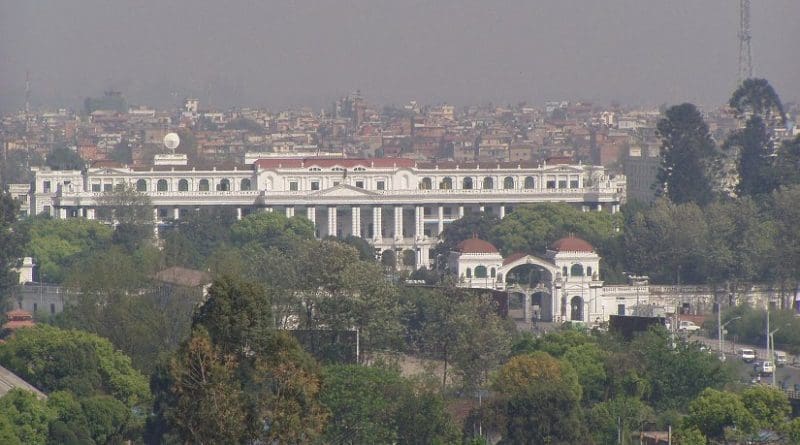Nepal: Terai Agitation And The Constitution Making Process – Analysis
By SAAG
By Dr. S. Chandrasekharan
With funds from abroad waiting to be used for rehabilitation and reconstruction work, the Government appears to be more keen in re drawing the controversial provincial boundaries resulting in a serious law and order situation in the south rather than take urgent measures to start the reconstruction work in all seriousness.
With the Terai Madhesh agitation also getting intensified with more civilian deaths in the last few days, the top three political parties are still keen to steam roll the revised bill on the new constitution in the assembly within the next week. rather than find an equitable solution for the crisis created by them. This is unfortunate.
The Chairman of the Constituent Assembly declared on 10 September that the country would be getting a new constitution within a week. After a clause wise discussion on revised bill of the constitution, the three top political leaders ( Nepali Congress, UML and the Maoists UCPN-M) will address the assembly before voting takes place.
Some 54 amendments (proposals) proposed by other members, will be disposed off by voice voting.
This is being pushed through despite serious second thoughts of some of the leaders of the Nepali Congress. Both Shekar Koirala and Arjun Narsing KC of the Nepali Congress have urged the party leadership to resolve the demands of Tharus and the Madhesis early before rushing into the new constitution.
Life in Terai has come to a standstill. Unofficial reports indicate that there were many civilian deaths due to Police firing in Janakpur, Rajbiraj and Birgunj. A Police post is said to have been attacked in Janakpur. In Biratnagar, the office of the District Conservative Office was torched. Stones and bottles were hurled at passing vehicles that defied the bandha. In the last three days, a total of 3254 vehicles were escorted through the Terai region. This may have to be continued indefinitely if the valley in the North is not to starve.
The Police appear to be using excessive force in suppressing the agitators and some describe it as a “vengeful response.”
The civil society consisting of well-known individuals has appealed to the government to find a political solution to the protests against the States’ delineation in Terai. The statement said:
“We urge the ruling and the disgruntled to adopt patience and sit for a dialogue. The Government should fulfill the valid demands of the protestors as it is the only way towards a solution.
Use of force by Police in areas including Birgunj and Janakpu which seemed more like revenge against the death of security personnel is highly objectionable.” (emphasis ours)
Thus, a full scale crisis is developing in Nepal with the southern Terai Madhes people determined to continue the agitation regardless of the consequences.
Gacchdhar the leader of the Madhesi Front ( democratic) who was with the other top three political leaders to draft the 16 point agreement has decided to withdraw from the constitution making process. The UDMF as well as the Tharuhat Terai party of Nepal has also decided to boycott the constitution making process.
Gachhadhar has saidm “The Terai-Madhes has turned into a battle ground … constitution drafting without addressing the concerns of such a vast population (13.5 million) cannot lead to a sustainable peace.
The position of the Terai leadership is also getting hardened. The four leaders, Upendra Yadav, Rajendra Mahatao, Mahant Thakur and Mahendra Raya Yadav of SLMM ( Samyukta Loktantrik Madhesi Morcha) have turned down the appeal for talks made by the three major parties yesterday (10/09). Their terms for coming to talks were:
- A guarantee for implementing the 8 and the 22 point agreement with the Terain leaders made earlier.
- Immediate stop to the constitution drafting process.
- Removal of the Nepal Army now mobilised in Terai.
- Stop oppressing the Terai agitation, provide free medical treatment to the people injured and to declare those killed as martyrs.
There is enough room for negotiations in the demands made. It is still not too late for the government to withdraw from the brink and go for negotiations. Constitution making process can be delayed for a while before a solution is found for the configuration of the provinces. K.P. Oli of UML will still get a chance to become the next Prime Minister.

